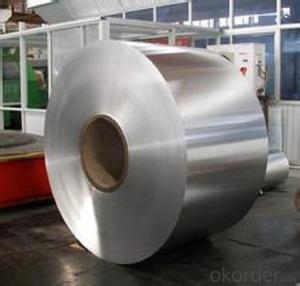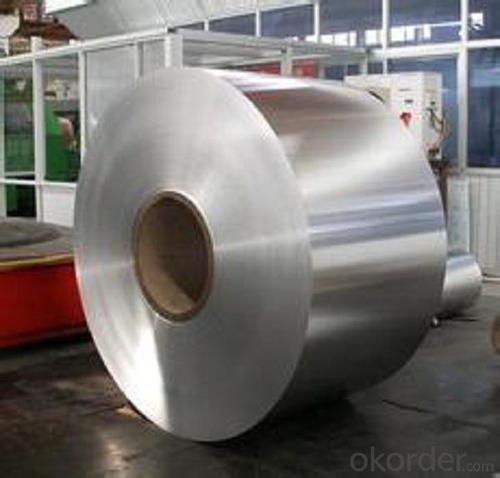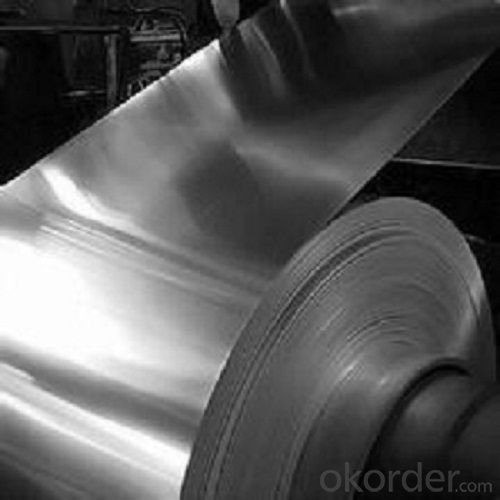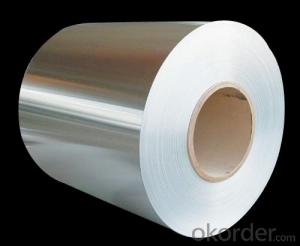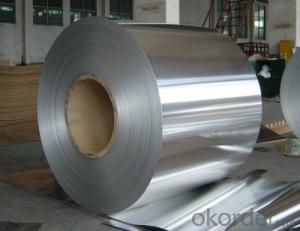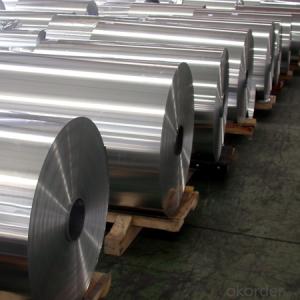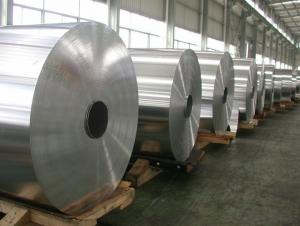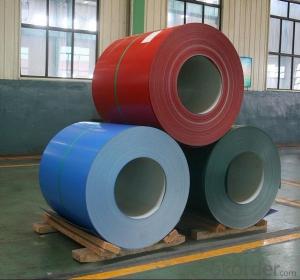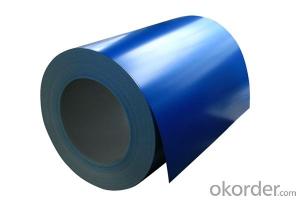Carrier Air Conditioner Aluminum Coil for Roofing, Ceiling, Gutter, and Decoration
- Loading Port:
- Shanghai
- Payment Terms:
- TT OR LC
- Min Order Qty:
- 2.5
- Supply Capability:
- 5000 m.t./month
OKorder Service Pledge
OKorder Financial Service
You Might Also Like
Specification
Aluminum Coil for Roofing, Ceiling, Gutter, Decoration
l Product Information
1. Alloy: 1100, 1145, 1050, 1060, 1070, 3003, 3105, 3A21, 3005, 3105, 3A21, 5052,5754,5082, 5083, 5182,5A03, 6063,6061,6082,8011 |
l Packaging & Delivery
Packaging detail: Standard seaworthy exporting carton, Wooden pallets, waterproof paper and plastic coverage or as customer's requirements
Delivery detail: about 25 days from received original L/C or advance payment.
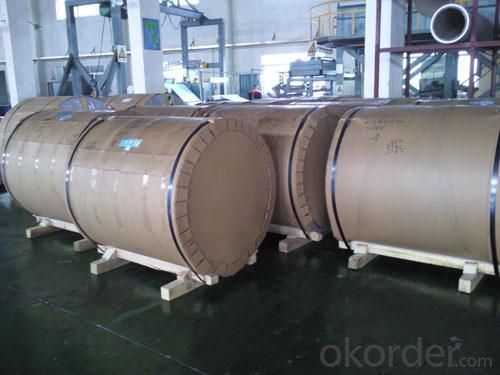
l Company Profile
CNBM International Corporation, China National Building Materials (Group) Corporation, is one of the largest companies in China building material & equipment industry, with 42,800 employees and sales in 2005 of US Dollar 4.395 billion. In 2006, China National Building Material Company Limited was listed on Hong Kong Stock Market with the stock code as 3323.
Aluminium coil is a popular product in the market of CNBM. With advanced technology and equipment, CNBM has sold its hight quality aluminium coil to the world.
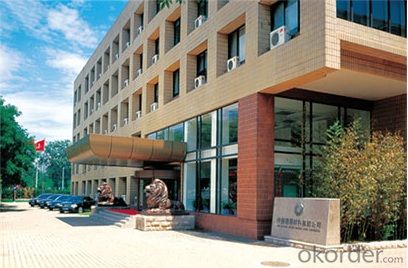
l Product Images
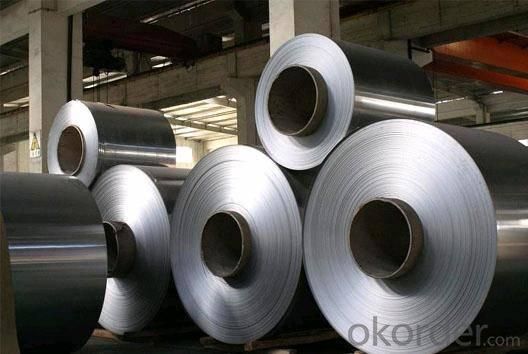
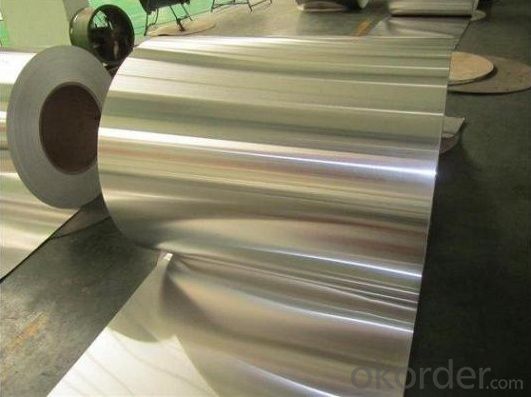
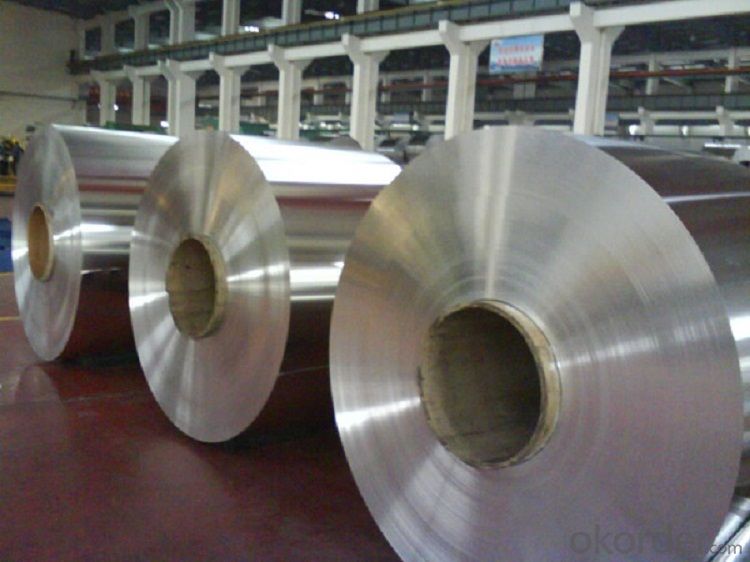
l Certificates
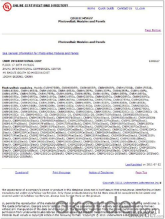
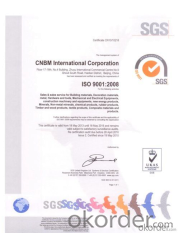
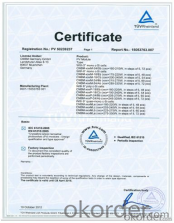
l FAQ
Q: Do you provide free samples?
A: Yes, free samples will be sent to you on freight at destination.
Q: Can I get your latest products catalogue?
A: Yes, it will be sent to you in no time.
Q: What is the MOQ?
A: 2.5 tons
Q: What are your payment terms?
A: We accept L/C, T/T.
- Q: What are the common applications of aluminum coils?
- Aluminum coils are widely used in various industries due to their unique properties and versatility. Some of the common applications of aluminum coils include: 1. HVAC Systems: Aluminum coils are extensively used in air conditioning and refrigeration systems, where they play a crucial role in heat transfer. The lightweight and excellent thermal conductivity of aluminum make it an ideal choice for these applications. 2. Transportation Industry: Aluminum coils are commonly used in the automotive and aerospace industries. They are used to manufacture radiators, condensers, evaporators, and other heat exchange components in vehicles. The high strength-to-weight ratio of aluminum helps in reducing the overall weight of the vehicle, leading to improved fuel efficiency. 3. Construction Sector: Aluminum coils find extensive use in the construction industry. They are used in the production of gutters, downspouts, roofing, and cladding materials. Aluminum's corrosion resistance and durability make it a preferred choice for outdoor applications that require long-lasting performance. 4. Electrical Industry: Aluminum coils are used in the production of cables and wires due to their excellent electrical conductivity. They also find use in transformers and power distribution systems. 5. Packaging Industry: Aluminum coils are widely used in the packaging industry. They are used to produce various types of packaging materials, such as cans, foils, and containers. Aluminum's ability to form a barrier against moisture, light, and oxygen makes it ideal for preserving the freshness and quality of food and beverages. 6. Marine Applications: Aluminum coils are used in the marine industry for manufacturing boats, ships, and other offshore structures. Aluminum's resistance to corrosion in saltwater environments makes it a suitable choice for these applications. 7. Industrial Equipment: Aluminum coils are utilized in various industrial equipment, including heat exchangers, condensers, and evaporators. Their thermal conductivity and corrosion resistance properties make them suitable for efficient heat transfer. In summary, aluminum coils have a wide range of applications across multiple industries, including HVAC, transportation, construction, electrical, packaging, marine, and industrial equipment. Their lightweight, excellent thermal conductivity, corrosion resistance, and durability make them a preferred choice for various applications.
- Q: Well, we've got the existing old school 7 layers of peeling yucky painted siding and we're trying to weigh our options. So here's my questions:1) Is it cost effective to replace Aluminum with Vinyl?2) Is Vinyl truly as costly as we keep hearing? **Home is small 1,100 sq.ft with a 2.5 car Garage**3) Is painting this existing siding a wise choice since the current paint job on it looks terrible? We just need to make it more a home, right now it's gorgeously all new and redone inside and on the outside it still resembles the day we bought it in forclosure. Aside from my green grass I busted my butt on last summer.Please advise.
- Vinyl is final. Change your siding. It will cost a little more now, but you will save a lot in the long run. If it buckles like one of your other answers, It means that it was installed improperly. Vinyl should not be nailed to tight. It needs to expand and contract with the temperature changes.
- Q: Can aluminum coils be used in the manufacturing of cans?
- Yes, aluminum coils can be used in the manufacturing of cans. Aluminum coils are often used to produce the thin sheets of aluminum that are then formed into cans. The coils are typically processed through a series of steps, including rolling, annealing, and slitting, to create the desired thickness and width for can production. The aluminum sheets are then cut into appropriate sizes and shaped into the familiar cylindrical can shape. Aluminum is a popular choice for can manufacturing due to its lightweight, durable, and corrosion-resistant properties. It also provides a barrier to light, oxygen, and moisture, helping to preserve the quality and shelf life of the contents inside the cans. Overall, aluminum coils are an essential component in the manufacturing process of cans and play a significant role in the packaging industry.
- Q: What is the role of aluminum coils in the automotive industry?
- Aluminum coils have a significant impact on the automotive industry, specifically in vehicle manufacturing. These coils are utilized to produce various parts and components like radiators, condensers, and air conditioning systems. One of the primary reasons why aluminum coils are favored in the automotive industry is due to their lightweight properties. Aluminum is considerably lighter compared to other metals like steel, making it an excellent option for enhancing fuel efficiency and reducing the overall weight of vehicles. Consequently, this not only improves vehicle performance but also decreases emissions, thereby contributing to a more environmentally friendly transportation sector. Moreover, aluminum coils possess exceptional thermal conductivity, which is crucial in automotive applications. They efficiently dissipate heat, ensuring the proper functionality of cooling systems and preventing overheating. This is particularly important for components such as radiators, as effective heat transfer is essential for maintaining an optimal engine temperature. Furthermore, aluminum coils exhibit high corrosion resistance. They naturally develop an oxide layer that safeguards against rust and corrosion, rendering them more durable and long-lasting compared to other metals. This corrosion resistance is particularly vital in the automotive industry, where vehicles are exposed to various environmental factors such as moisture, salt, and chemicals. Additionally, aluminum coils offer design flexibility. They can be easily molded and shaped into different sizes and configurations, enabling manufacturers to produce complex and customized components. This design flexibility allows automotive companies to optimize space and maximize efficiency in their vehicles. To summarize, aluminum coils play a crucial role in the automotive industry. Their lightweight nature, excellent thermal conductivity, corrosion resistance, and design flexibility make them an ideal choice for various automotive applications. Consequently, they contribute to improved vehicle performance, fuel efficiency, and overall durability.
- Q: We are working on a new aluminum fixture. It is basically an aluminum spine with many 6061-T6 pins sticking out. Currently we drill the holes inside the spine and hammer the 5/32 6061-T6 pins inside. Is there anyway to cast aluminum with many 6061-T6 pins embedded (they will stick out after the casting)?
- Casting aluminum is one of the least expensive ways to make metallic objects and with a little clean up work and polishing, the results are stunning and shine like the wings of the old WWII bombers. Cast aluminum melts at a hot but relatively low temperature and is easy to carve after you cast it.
- Q: What are the different coil slitting widths available for aluminum coils?
- The different coil slitting widths available for aluminum coils vary depending on the specific requirements and industry standards. Generally, aluminum coils can be slit into various widths ranging from as narrow as 0.5 inches to as wide as 72 inches or even wider. The exact range of available coil slitting widths is determined by the equipment and capabilities of the coil slitting facility. These coil slitting widths cater to different applications and industries such as automotive, construction, packaging, and electronics. Some common coil slitting widths for aluminum coils include 12 inches, 24 inches, 36 inches, and 48 inches. However, it is important to note that custom slitting widths can also be requested to suit unique project needs.
- Q: We are shopping for a new LQ trailer. We are looking at several different brands and noticed that some have aluminum skin on an aluminum frame, and others have aluminum skin on a steel frame. Other than the obvious differences in weight and cost, what are other benefits/disadvantages of each? Thanks
- I swear by an all aluminum trailer! Aluminum over steel next, and I hope I never own another steel trailer! I have had trailers for, lets see, 40 years now, and just bought my first aluminum one about 6 years ago. It is 14 years old and except for a few bumps that WE put in it (the same amount of bump would have dented a steel trailer too) it is in GREAT shape. A 10+ year old steel trailer shows a LOT of wear, and has to be sanded and painted often.
- Q: Are there any limitations on the bending or forming of aluminum coils?
- The bending or forming of aluminum coils does have limitations. Despite being a relatively malleable metal, aluminum does possess certain constraints in terms of bending or forming. Firstly, one limitation lies in the occurrence of cracks or fractures during the bending process. Unlike other metals, aluminum exhibits lower ductility, making it prone to cracking or breaking under excessive stress or strain. As a result, it is crucial to carefully manage the bending process to prevent over-stressing the aluminum coils and causing damage. Another limitation involves the spring-back effect. When aluminum is bent or formed, it naturally tends to slightly return to its original shape. This poses a challenge in achieving precise and accurate bends or forms, especially with complex shapes or tight tolerances. Moreover, the thickness and grade of the aluminum can impact its bendability. Thicker aluminum coils may necessitate more force or specialized equipment for bending, while different mechanical properties of specific aluminum alloys can influence their formability. To address these limitations, various techniques and tools can be employed. For instance, the use of specialized bending equipment like press brakes or roll forming machines can help control the bending process and minimize the risk of cracking or spring-back. Additionally, preheating the aluminum coils can enhance their ductility, making them more pliable for bending or forming. Considering these limitations and operating within defined parameters is essential for successful bending or forming of aluminum coils. Seeking advice and assistance from experts or manufacturers well-versed in aluminum processing can provide valuable guidance in effectively overcoming these limitations.
- Q: Is it possible to use aluminum coils in the creation of toys or games for children?
- <p>Yes, aluminum coils can be used to make toys or games for children, but safety considerations must be taken into account. Aluminum is a lightweight, durable, and non-toxic material, making it suitable for various applications, including children's toys. However, it's crucial to ensure that any aluminum used in toys is properly treated to prevent sharp edges or small parts that could pose a choking hazard. Additionally, the toys or games should be designed and manufactured to meet safety standards and regulations to protect children from potential harm.</p>
- Q: How do aluminum coils compare to other metal coils?
- Aluminum coils are generally lighter, more corrosion-resistant, and have better thermal conductivity compared to other metal coils. They are also easier to shape and mold, making them a popular choice in various industries including automotive, aerospace, and HVAC.
Send your message to us
Carrier Air Conditioner Aluminum Coil for Roofing, Ceiling, Gutter, and Decoration
- Loading Port:
- Shanghai
- Payment Terms:
- TT OR LC
- Min Order Qty:
- 2.5
- Supply Capability:
- 5000 m.t./month
OKorder Service Pledge
OKorder Financial Service
Similar products
Hot products
Hot Searches
Related keywords
